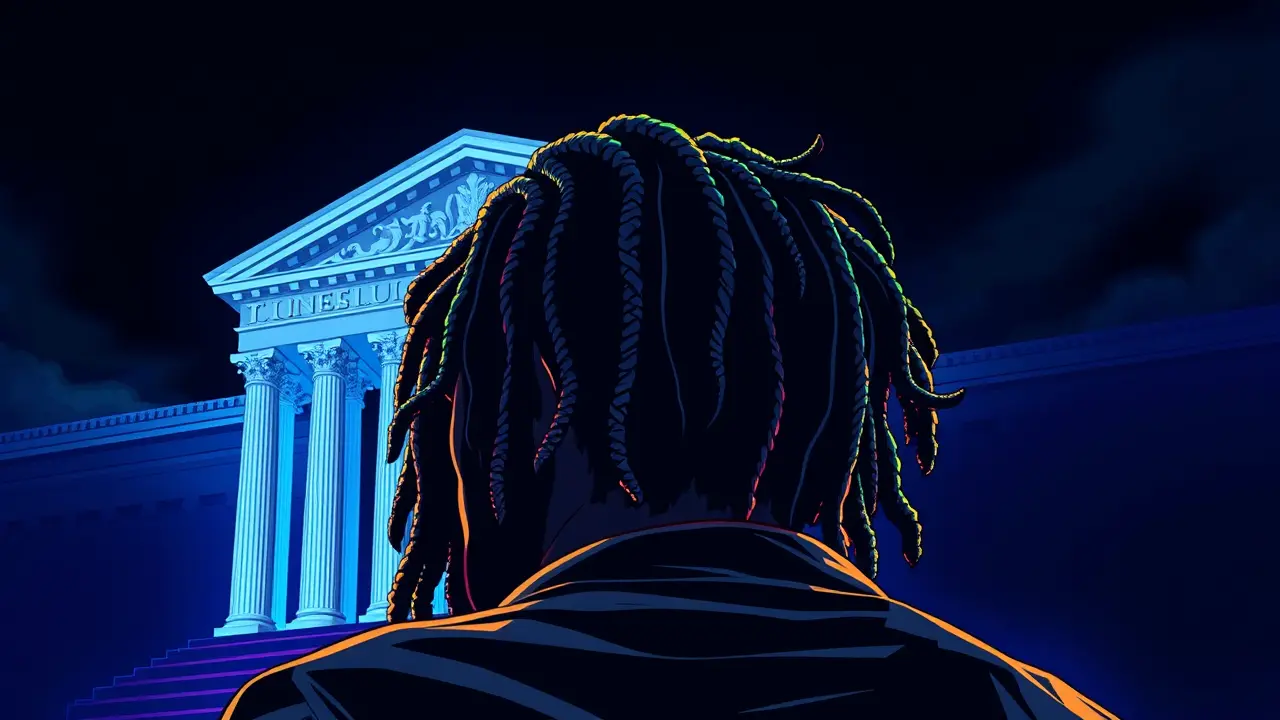
Politicscourts & investigationsSupreme Court Rulings
Supreme Court Hears Case on Prisoner's Religious Rights Violation.
RO
1 month ago7 min read4 comments
The Supreme Court now confronts a case that strikes at the very heart of religious liberty within America's penal system, a matter that should, by any measure of justice, be straightforward yet has been entangled in a web of legal precedent stretching back decades. Damon Landor, a Rastafarian man whose faith forbids the cutting of his hair, endured what can only be described as a profound and deliberate violation when Louisiana prison officials, in 2020, handcuffed him to a chair and forcibly shaved his head.This act was not one of ignorance; Landor arrived at the facility armed with a copy of the 2017 Fifth Circuit Court of Appeals decision in *Ware v. Louisiana Department of Corrections*, which explicitly held that the state's policy of shearing Rastafarian inmates violated the federal Religious Land Use and Institutionalized Persons Act (RLUIPA).The officials proceeded regardless, an act of defiance that transforms this from a simple infraction into a direct challenge to judicial and congressional authority. The case, *Landor v.Louisiana Department of Corrections*, thus presents a stark tableau: a man's deeply held beliefs were trampled in the face of established law, and the question before the justices is whether the architects of that humiliation can be held personally accountable. The legal labyrinth Landor must navigate is a direct creation of the seismic shift in religious freedom jurisprudence initiated by Justice Antonin Scalia's opinion in *Employment Division v.Smith* (1990). That decision dramatically narrowed the Constitution's Free Exercise Clause, declaring that generally applicable, neutral laws need not provide exemptions for religious practices.The political and legal backlash was swift and bipartisan, culminating in the near-unanimous passage of the Religious Freedom Restoration Act (RFRA) of 1993, a legislative effort to restore the pre-*Smith* standard established in *Sherbert v. Verner* (1963).Yet, the Supreme Court, in a powerful assertion of judicial supremacy, struck back in *City of Boerne v. Flores* (1997), invalidating RFRA as it applied to state governments.Congress's subsequent response was RLUIPA in 2000, a more surgical statute that leverages the federal spending power—established in precedents like *South Dakota v. Dole* (1987)—to impose religious accommodation requirements on state prisons that accept federal funds.Herein lies the crux of Landor's predicament. While Louisiana, by accepting federal money, arguably contracted to abide by RLUIPA, the lower courts have almost uniformly held that individual prison guards are not parties to that agreement.
#Supreme Court
#Religious Liberty
#RLUIPA
#Prisoner Rights
#Rastafarian
#featured
Stay Informed. Act Smarter.
Get weekly highlights, major headlines, and expert insights — then put your knowledge to work in our live prediction markets.
Comments
Loading comments...
© 2025 Outpoll Service LTD. All rights reserved.